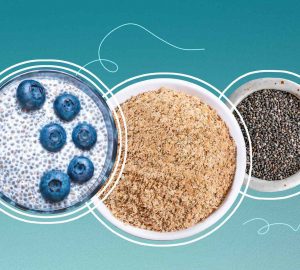The landscape of nutritional recommendations has undergone significant changes over the years, leading to a fascinating shift in our understanding of what constitutes a healthy diet. Many foods that were once vilified as “unhealthy” or deemed to be dietary villains have now been recognized for their positive impact on our well-being. As scientific research progresses and our knowledge deepens, we are discovering that certain foods previously frowned upon can actually provide valuable nutrients and health benefits when consumed in moderation. In this article, we will explore the intriguing concept of formerly unhealthy foods that were once considered unhealthy but are now recognized as beneficial additions to a balanced diet.
Our evolving understanding of nutrition has prompted a reevaluation of various foods that were previously demonized for their perceived negative effects on health. From eggs and avocados to dark chocolate and whole-fat dairy products, these once-maligned foods have experienced a remarkable transformation in their reputation. Research has revealed their potential positive impact on various aspects of our well-being, including heart health, cognitive function, and nutrient intake.
As we delve into the fascinating world of formerly unhealthy foods, it’s essential to approach this information with a balanced perspective. While these foods can certainly be incorporated into a healthy diet, moderation remains key. Let’s explore the science-backed evidence behind these nutritional turnarounds and uncover the hidden health benefits of foods that have emerged from the shadows to claim their place on our plates.
Eggs
Eggs were once considered a dietary taboo and thought to clog arteries, which could lead to heart attacks or strokes. However, new research give individuals the green light to consume eggs on a daily basis, some are even calling eggs a superfood. One egg contains healthy amounts of unsaturated fats, high-quality protein and 13 essential minerals and vitamins for only 75 calories. Although the yolk contains 213 milligrams of dietary cholesterol, consuming one whole egg several times per week is acceptable as long as other foods high in cholesterol are limited.
Pork
Pork has long been demonized as a fatty, formerly unhealthy foods. However, if you are familiar with the right cuts such as boneless loin chops, tenderloin and center cut bacon, pork is superior to chicken as a source of complete protein. On lean, well trimmed cuts, a pork tenderloin is just as lean as a skinless chicken breast. Pork cuts taken from the loin such as pork roast or pork chops are lower in fat and calories than a skinless chicken thigh. Aside from its low fat and calorie content, pork is also a good source of thiamin, niacin, riboflavin and vitamin B6.
Coffee
You may have heard that drinking this caffeinated beverage is bad for your health, although new scientific research states differently. Of course, consuming too much caffeine can cause insomnia and jitteriness, but scientists have discovered that drinking coffee on a regular basis can help reduce your risk of developing diabetes, Parkinson’s disease, colon cancer and even headaches. One study in particular shows that individuals who drink 2 cups of coffee per day have a 20% fewer risk of developing colon cancer than individuals who drink none. Although more research is needed, many health experts believe that coffee’s health benefits outweigh its negatives.
Potatoes
When the low-carb diet craze hit the public, potatoes were cast to the wayside as one of the formerly unhealthy foods. However, when prepared properly, potatoes are a versatile, nutritious and inexpensive food that should have a place in your diet. One medium skin-on potato contains only 160 calories and is high in fiber and potassium. Potatoes should be enjoyed on a constant basis when they are roasted, baked or mashed. When enjoying potatoes, be aware of adding fatty toppings such as shredded cheese, butter and sour cream, which can add hundreds of calories and unnecessary fat.
Dark Chocolate
Chocolate lovers rejoice! Studies have shown that dark chocolate contains potent antioxidants known as flavonoids similar to those found in fruits, vegetables, red wine and tea. Consuming a small amount of pure dark chocolate on a daily basis can help improve the flow of blood through vessels and capillaries in older adults, and may help improve insulin sensitivity.
Remember that no matter how healthy a food, consuming everything in moderation is key to healthy results. All of the above foods provide you with important nutrients and vitamins, but you can have too much of a good thing. Following a sound nutrition plan that is well- balanced in proteins, carbohydrates and fats can help you achieve and maintain optimal health.
This article was written by Sergeant Michael Volkin, inventor of Strength Stack 52 exercise cards, a unique way to transform bodyweight exercises into a fun and competitive workout.








